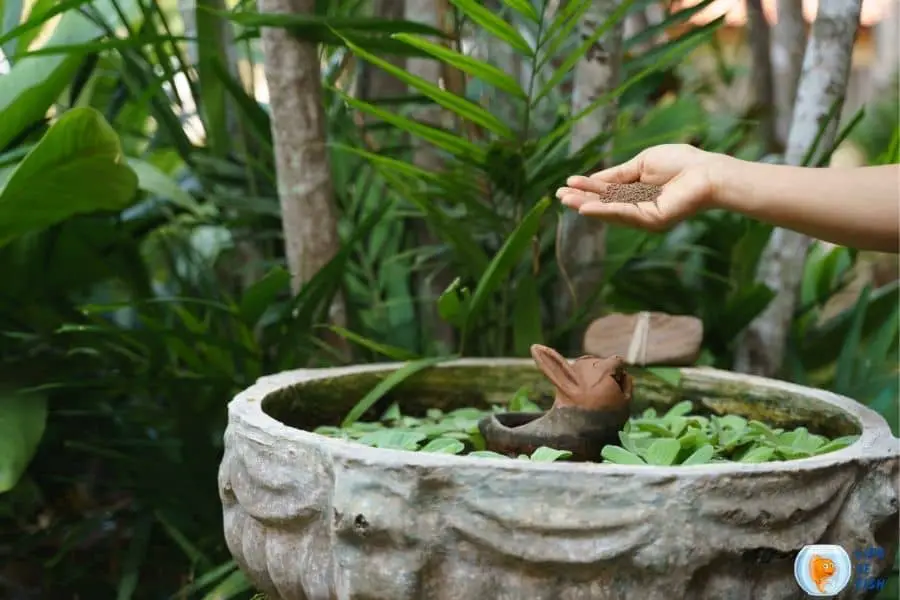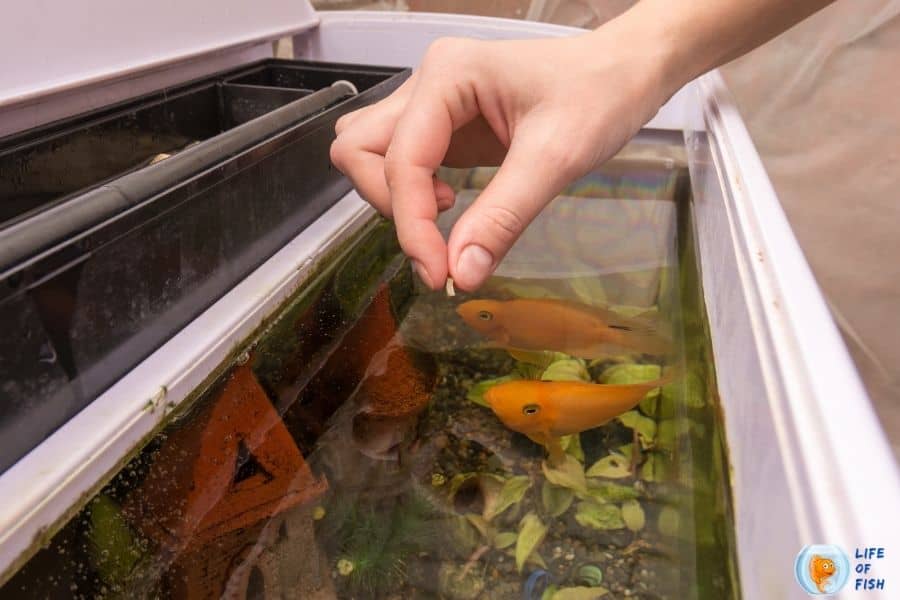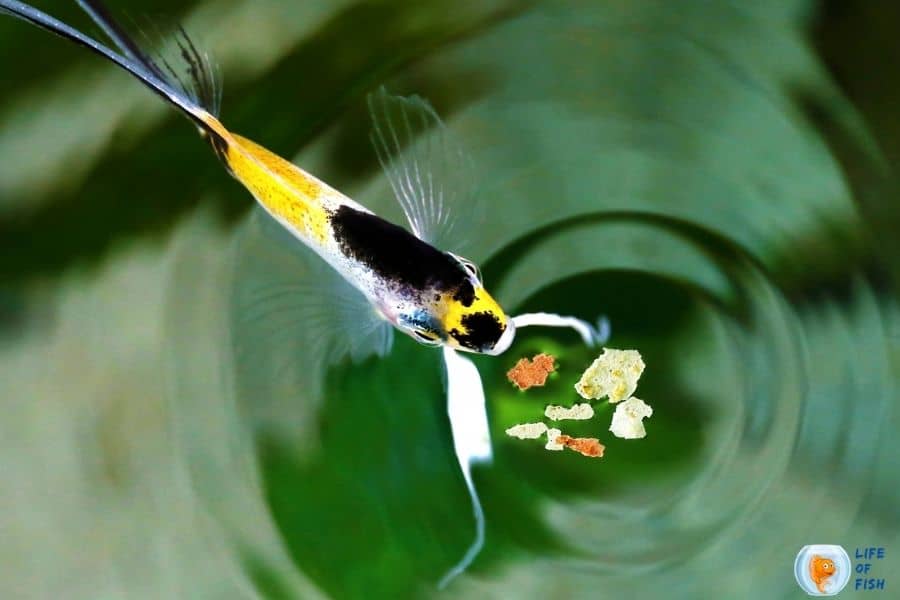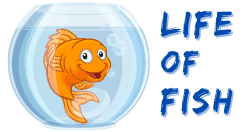If you’re headed out of town for a few days or even longer, you may be wondering how your pet fish will fare without their regular feedings or How Long Can Fish Survive Without Food?
The truth is, most fish can actually go quite a while without eating before it becomes dangerous. However, there are several factors that determine exactly how long fish can survive without food.

Key Factors That Impact How Long Fish Can Go Without Eating
Jump To
There are three main elements that affect how long fish can go without being fed:
1. The Age and Health of the Aquarium
- Older, established aquariums contain good bacteria that help keep fish healthy.
- New tanks undergo “new tank syndrome” where ammonia can accumulate, making it riskier to leave fish unfed.
- Tanks should be set up and running for at least 3 weeks before leaving fish for extended periods.
2. The Species of Fish
- Herbivores need more frequent feedings than carnivorous fish.
- Younger fish need to be fed more often than adult fish.
- Larger fish can typically go longer without eating than smaller species.
3. Duration of Your Absence
- Leaving fish for 1-3 days is generally safe.
- Being gone longer requires more preparation like tank cleaning and partial water changes.
- Never leave fish for more than 2 weeks, even with a sitter.
How Long Can Most Fish Survive Without Food?
Now that you know the factors that impact fasting time, what’s the general rule of thumb?
- Most adult fish can last **1 week (7 days)** without food before health issues occur.
- For juveniles, it’s safer to limit fasting to **2-3 days** at most.
- Certain hardy species can go even longer, up to **2 weeks** without eating.
Again, the healthiest aquariums with established good bacteria will help your fish endure longer periods of hunger.

Why Fasting Fish Can Be Beneficial
Believe it or not, skipping a meal every so often can actually be good for your fish. Here’s why:
- Fasting helps clean out their digestive system and prevents constipation.
- It allows fish to burn through fat reserves and prevents obesity.
- Cutting back on feedings improves water quality by reducing waste.
For these reasons, many experts recommend fasting fish **once a week**, usually for a **24-48 hour** period.
Feed Your Fish While You’re Away With These Methods
If you’re leaving town, you’ll need to make arrangements for your fish to be fed in your absence. Here are some good options:
Automatic Fish Feeders
These battery-powered devices can be programmed to release food 1-2 times per day. However, they only work with dry foods.
Fish Sitters
Hiring someone to come feed your fish ensures proper care. Give detailed instructions on amounts and tank maintenance.
Food Blocks
These compressed blocks gradually dissolve and release nutrients. However, fish don’t always recognize them as food.
Ask a Friend
Have someone you trust feed your fish while you’re gone. Make sure they know proper amounts to prevent overfeeding.
Special Considerations for Fish Bowls
Fish bowls require more frequent water changes and maintenance due to lack of filtration. You should never leave a fish in a bowl alone for more than 1-2 days. Vacationing fish bowlers will need to transfer their pet to a filtered tank or hire a sitter.

FAQs About Fish Fasting
Can fish go a week without eating?
Most adult fish can survive for around 7 days without food. However, juvenile fish have less fat reserves and should only fast 2-3 days maximum.
Is it OK to not feed my fish for a few days?
Skipping a meal every once in a while is totally fine and even beneficial. Just don’t make a habit of it. Fasting 1 day a week is sufficient.
How do I keep my fish fed on vacation?
Automatic feeders, fish sitters, and food blocks are good options for providing nutrition when traveling. Just be sure not to leave fish alone for more than 2 weeks.
How long can small fish go without food?
Small fish species with faster metabolisms can generally only go 2-3 days without eating before health issues arise. They require more frequent feedings.
Can goldfish survive a week without food?
Yes, most adult goldfish can last around 7 days without food. However, juvenile goldfish have less reserves and should only fast for a maximum of 2-3 days.
The Takeaway on Fasting Fish
While most fish can survive up to a week without eating, limiting fasting periods to 24-48 hours once a week is ideal. Make arrangements for proper feeding if traveling for an extended time.
Consider factors like tank maturity, species, age, and trip duration when determining how long your fish can safely go without food. With some preparation, your fish can stay happy and healthy, even when you’re away.
